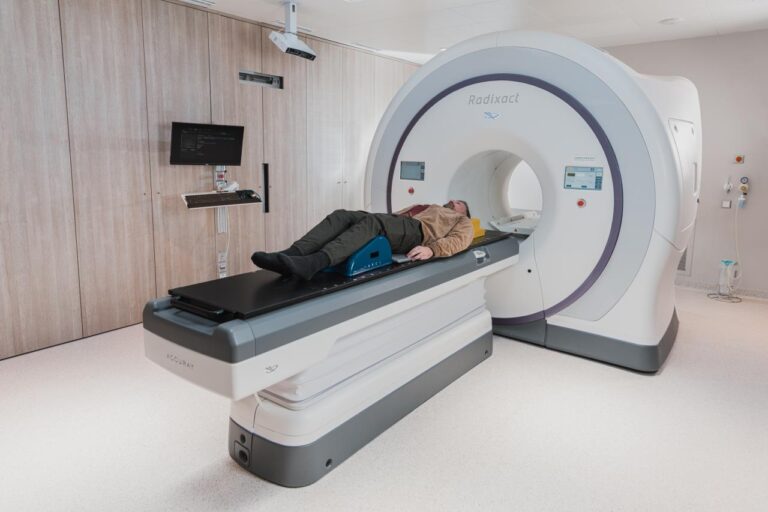After years of fundraising, decades of testing and a recent Health Canada approval, Canada’s East Coast is now home to a new state-of-the-art machine expected to provide a faster, more precise and targeted cancer treatment.
“We’re seeing things that we could never see before on the daily treatment images that we would get,” said Dr. Amanda Cherpak, the clinical medical physics director and associate professor at Dalhousie University’s department of radiation oncology.
Designed by Varian Medical Systems in California, the Ethos radiotherapy cancer care system located in the QEII Health Sciences Centre’s Dickson Building in Halifax will take clearer, more precise images to help physicians identify tumours more quickly and provide a more precise treatment plan. Patients in Kelowna, B.C., were the first to use the technology, an announcement in January said.
“If we can see what we want to treat and we can see it better, then you can start to zero in on exactly where the tumour is and start to spare the healthy tissues around tumours a little bit better,” added Dr. Cherpak.
Similar to an MRI, patients will lay down and will be scanned in just a matter of six seconds. With the help of A.I. technology, Dr. Cherpak says the Ethos machine can adapt to changes in the shape and position of cancer tumours, particularly useful when a tumour is located in vital organs.
“We can move to what we call hypofractionation and instead of delivering treatment over several days and weeks we can start shrinking it down to just days,” said Dr. Cherpak.
Previous scanning devices would have a difficult time in capturing images of tumours in the head and neck areas when patients have metal dental implants. This new device can again take better images with little interruptions.
“This imaging system really handles the distortion we previously would see based on those implants, so this is great for people who have tumours in their neck or head,” said Dr. Cherpak.
That was a major selling point for the people and businesses of Nova Scotia who spent nearly three years donating up to $8 million to get the machine in the province.
“The story about people driving into the city from hundreds of kilometres away and they come in for perhaps five days of treatment instead of five weeks was big, to show what this could mean for the people here,” said Susan Mullin, QEII Foundation president and CEO.
“By people donating to this cause, they are changing the future of cancer treatment for Nova Scotians, for Atlantic Canadians and indeed people around the world. I just want to say thank you to everyone who helped us transform healthcare and we can’t do it without the community,” said Mullin.
According to a 2022 report from Canadian Cancer Statistics, Atlantic Canada is still leading the country with the highest rate of cancer, with more than 5,000 positive diagnosis for every 100,000 people.
“I never thought that I would have to deal with cancer in my lifetime but no one never knows nowadays,” said Bill Ross, a Smiths Cove, NS resident who was diagnosed with prostate cancer last summer. He says he is thankful to be able to use the device in January and will help reduce his time away from home.
“The specialists didn’t stall or take anytime; they were on the ball, bingo, bango and they set up all my appointments.”
The Nova Scotia Government announced in the fall it would spend $20 million on two more Ethos machines. The devices will be installed by the Spring.
Source: ctvnews
